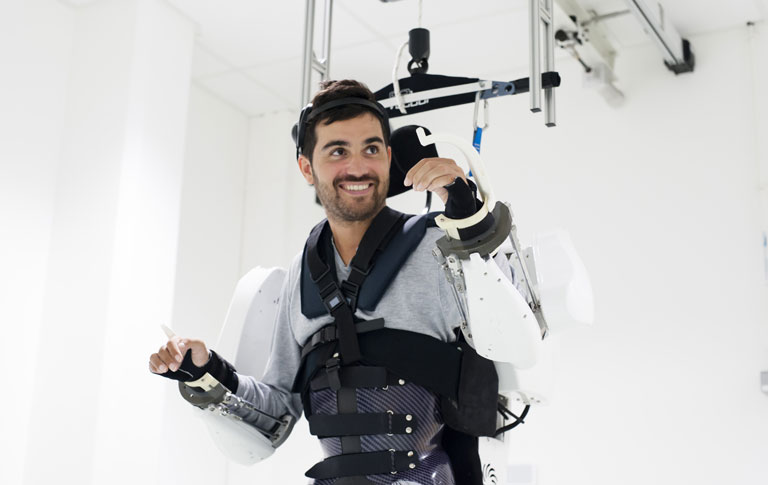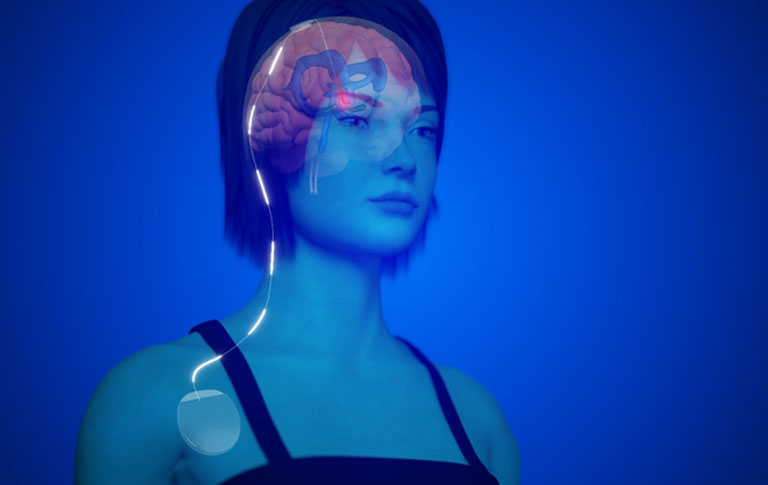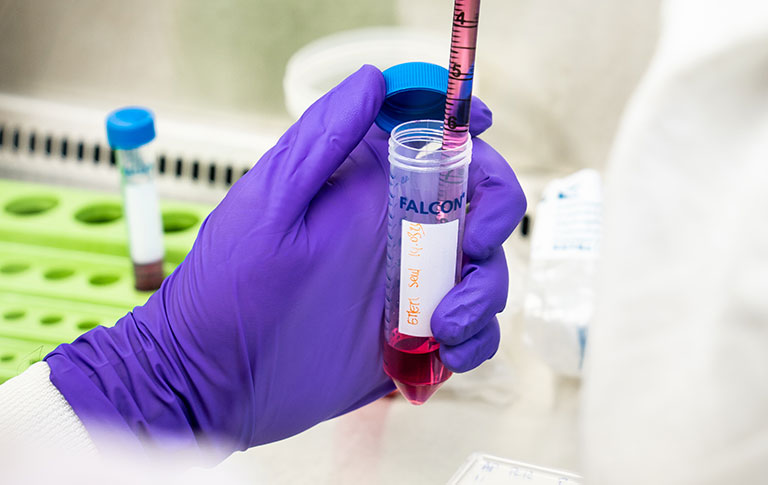Accueil / Projects / Partner projects we support
Partner projects we support
Since 2014, Fonds Clinatec has supported 25 research projects at Clinatec.

BCI
As part of the BCI “Brain-Computer Interface” project, Clinatec teams have developed a unique brain-computer interface technology for tetraplegic patients, based on a brain implant. In 2019, this Wimagine® implant enabled the first demonstration of thought-based control of a four-limb exoskeleton.
In spring 2023, the Wimagine® implant enabled a paraplegic patient to walk again in a natural way, thanks to the coupling of the Wimagine® brain implant with a stimulator placed in the spinal cord below the lesion, creating a digital bridge.
The aim is to deploy this innovative Wimagine® technology as close as possible to tetraplegic patients, to enable them, for example, to perform gripping tasks as part of their daily lives.
Pr Alim-Louis Benabid – Guillaume Charvet

NIR
The NIR (Near InfraRed) project involves the intracranial application of photobiomodulation to evaluate its effect on the neurodegenerative process of Parkinson’s disease.
A clinical trial started in 2021 aims to demonstrate the non-toxicity of an intracranial implant, as well as the impact of photobiomodulation on disease progression.
Three patients have already been implanted, and fourteen will eventually be included in the clinical trial, seven of them implanted.
The patients will come to Clinatec for regular check-ups.
Pr Stéphan Chabardès – Dr Cécile Moro

Epicool
Epilepsy is a severe, disabling neurological disorder for which there are surgical and pharmacological solutions.
The Epicool project aims to develop the first treatment for drug-resistant epilepsy, using a brain implant to detect the onset of a seizure and prevent it by cooling the identified epileptogenic zone.
Pre-clinical trials are underway to evaluate the implant’s functionality. At the same time, developments are being carried out with the CEA to identify the best technical solution for miniaturizing and cooling the target zone.
Dr Napoléon Torres Martinez – Dr Thomas Costecalde

NIRILO
Islet transplants can be used to treat some patients with type 1 diabetes. The grafting process inevitably induces ischemia, which is harmful to the graft.
Photobiomodulation (PBM) could mitigate stress and improve the viability and functionality of the transplanted cells.
The aim of the NIRILO project is to use organ-on-chip medical devices to assess the effect of near-infrared light on the survival of islets of Langerhans.
Dr Cécile Moro
Our major research projects need your support
Give to the Clinatec endowment fund and champion innovative research. Our people will be happy to work with you to see how you can best help us: contact@fonds-clinatec.fr.
